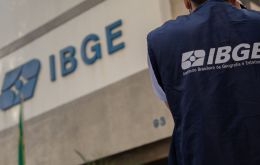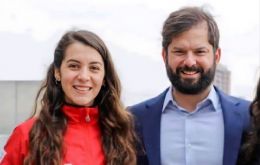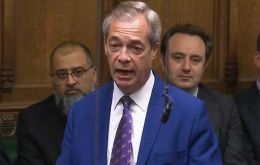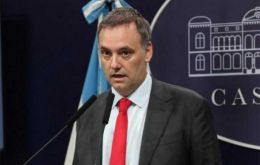MercoPress. South Atlantic News Agency
Stories for 2024
-
Thursday, December 5th 2024 - 06:05 UTC
Shipping sectors benefit from the Red Sea blockade, boosting demand for ships and higher fares

But the Red Sea shipping scenario with the Houthis attacks, and to a smaller extent, the drought in Panama – have had as can be expected in such situations, some sectors that can benefit. That is why most shipping sectors have experienced the strongest growth in ton-miles registered this year since 2010, helping prop up rates to highly profitable levels
-
Thursday, December 5th 2024 - 02:57 UTC
Explore Forex trading opportunities in the LatAm markets

Latin American (LatAm) countries rely primarily on their agriculture and mining sectors, using the vast arable lands and mineral-rich resources to develop their economies. The region has a population of over 665 million and a GDP of $6 trillion. This growing market is ripe for technological development that investors can benefit from.
-
Thursday, December 5th 2024 - 01:41 UTC
Innovations in digital payments: Trends for the upcoming 2025

Digital payments have evolved rapidly over the last decade, reshaping how we transact, save, and invest. As we approach 2025, new innovations promise to further enhance the digital payments experience.
-
Wednesday, December 4th 2024 - 21:30 UTC
Brazil: IBGE says growth in 3Q reached 0.9%

Brazil's economy grew 0.9% in the third quarter of 2024, according to data released this week, Agencia Brazil reported Wednesday citing figures from Brazil's Institute of Geography and Statistics (IBGE), which represented a 4% yoy increase in the country's Gross Domestic Product (GDP)—the total of all goods and services produced nationwide.
-
Wednesday, December 4th 2024 - 18:06 UTC
Chile: Boric announces first child due in June

Chilean President Gabriel Boric Font announced through his Instagram account that he will become a father for the first time after conceiving a child with professional basketballer Paula Carrasco. He added to the posting an image of an ultrasound. “We will give the best of us so that the Chile we live in will be fairer and happier. We love you,” the head of state also wrote in a message to his child, due in June next year.
-
Wednesday, December 4th 2024 - 10:46 UTC
Reform leader Farage questioning the Chagos Islands deal; allegedly Trump advisors are against it

The UK's deal to return the Chagos Islands to Mauritius is “strongly supported” by the United States, according to the Government. In October, it was confirmed the islands would once again come under Mauritian control, although Diego Garcia would remain a military base for the US and UK, with Britain maintaining a 99-year lease over it.
-
Wednesday, December 4th 2024 - 10:00 UTC
Former Bolivian president Sánchez de Lozada sentenced to 6 years in jail

Bolivia's Supreme Court of Justice (TSJ) Tuesday sentenced former President Gonzalo Sánchez de Lozada (1993-1997 and 2002-2003) to 6 years in jail for signing numerous oil contracts without parliamentary approval. The 94-year-old former head of State resides in the United States and it remains to be seen whether he can be extradited.
-
Wednesday, December 4th 2024 - 09:54 UTC
Uruguayans do their shopping in Brazil to capitalize on surging US dollar

Uruguayan retailers in cities bordering Brazil have expressed concern after residents increased their tendency to shop abroad in the face of the recent rise in the US dollar. Meanwhile, duty-free shops are looking for strategies to cushion the drop in sales to the Brazilian public, amid fears of a surge in smuggling.
-
Wednesday, December 4th 2024 - 08:49 UTC
Argentina to charge non-resident aliens for medical care and college education

Argentina's Libertarian Government plans to reform the country's migration laws, including charging non-resident foreigners for medical attention and college tuition, among other initiatives, Presidential Spokesman Manuel Adorni announced Tuesday.
-
Wednesday, December 4th 2024 - 07:06 UTC
Paraguay: Anti-corruption bill signed into law

Paraguayan President Santiago Peña Tuesday signed into law the so-called “National Regime of Integrity, Transparency and Prevention of Corruption of the Republic of Paraguay” during a ceremony in Asunción attended by dignitaries of the other two branches of Government.
